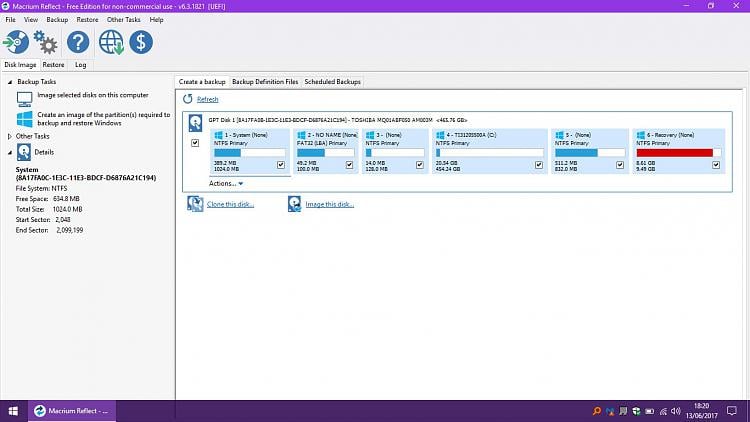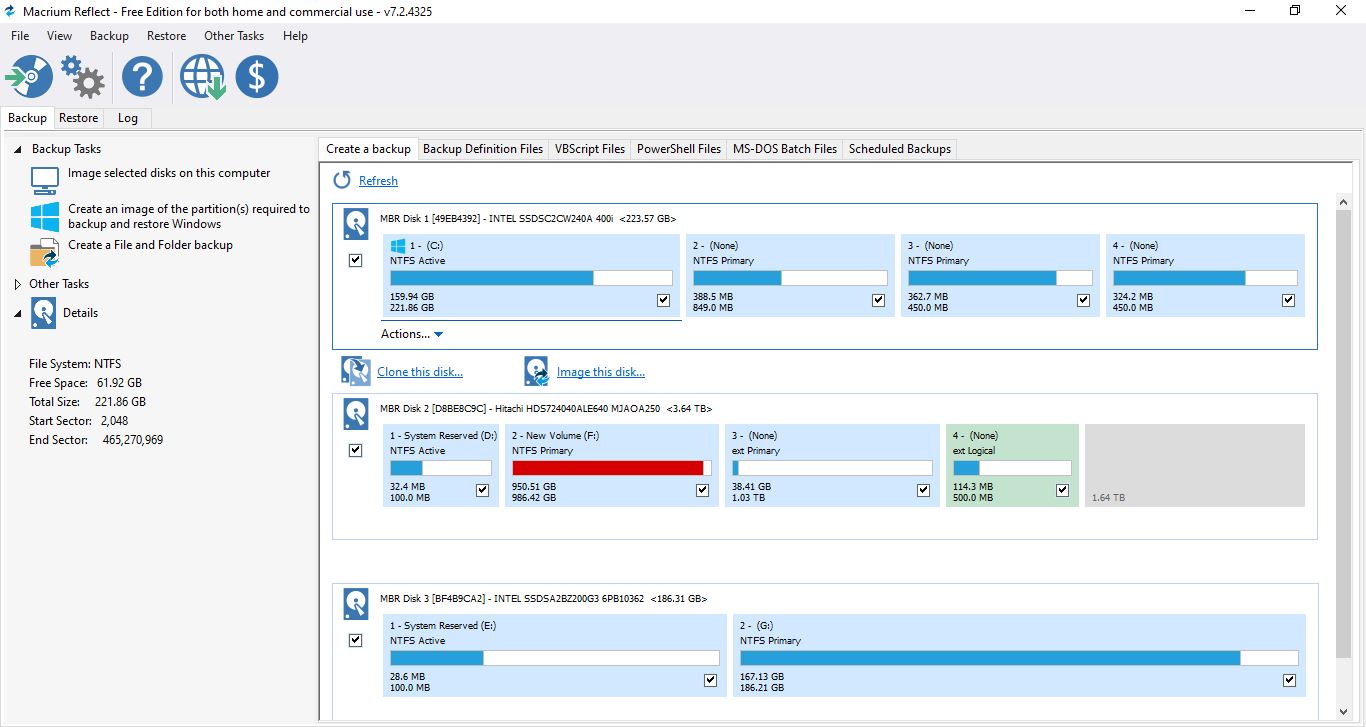

( This article provides a fairly good explanation, if needed, about using the "Something else" installation option.) I chose to make every drive on my system independently bootable with the default in each case set either to the OS installed to the single partition on that SSD (using an MBR boot configuration) or to one of several "rescue" environments on the HDDs that I use as backup destinations.

In fact, my operating philosophy in general is "backup comprehensively and recover selectively as needed", the only discrepancy being the inability that I mentioned to recover individual files and folders from the Ext partition backup images.Īs you are probably aware, Linux offers user-selectable options for its installation boot set-up. My own primary full backup task definition includes all partitions on all four of the SSDs used for my multi-boot setup and I can select any one of them for restoration at any time. Reflect just handles Ext partition backups like any others.

Grub, or even Grub4DOS, makes things much easier.

It is possible to use the Windows boot configuration data (BCD) store for booting Linux, but it's a tricky proposition. You wouldn't be able to depend, for example, on Reflect's "Fix Windows Boot Problems" utility to repair a set-up that involves Linux booting. I should probably add that multi-boot arrangements themselves may involve more issues than merely backing up and restoring drive partitions. The competitor you mentioned in your previous post can mount its Ext partition images, or at least the ATI version that I last used could and did so automatically. (See this KB article.) Reflect cannot, however, mount Ext partition backup images for recovering individual files and folders as it can with FAT and NTFS partitions. In fact, imaging clusters in use and changed clusters (Reflect's "intelligent copy") is supported by FAT16, FAT32, NTFS and Ext 2,3,4 file systems. As I mentioned in reply to your previous post on this subject, Reflect is perfectly capable of backing up and restoring Ext partitions used by Linux and I say that based on direct personal experience with my own multi-boot (Win7 / Win8.1 / Win10 / Linux Mint) setup.


 0 kommentar(er)
0 kommentar(er)
